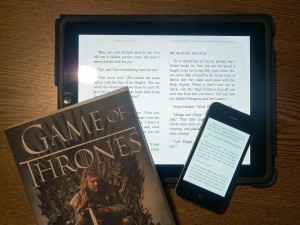 Last summer I went on a Great American Road Trip. In this case, I drove from New Orleans to my home in Sonoma, California. In preparation for such a journey, my wife and I of course went to our local public library to find and download audio books we would like to listen to on our journey.
Last summer I went on a Great American Road Trip. In this case, I drove from New Orleans to my home in Sonoma, California. In preparation for such a journey, my wife and I of course went to our local public library to find and download audio books we would like to listen to on our journey.
As the savvy among you already know, it was more of a hassle than it needed to be, thanks to the way in which e-book vendors choose to make their materials available to libraries and their users. But that isn’t the particular gripe I am writing about now. No, I have a different complaint.
As a library user I desperately desire frictionless ebooks. Or, dare I dream, even frictionless books (whatever the format). What I mean is this: why should format matter? WHY? If I am legally able to read a book, why should format matter? Why can’t I simply read it the way I want to?
For example, on this trip we downloaded audio books since we were driving a long way. But guess what? Our trip ended. And yet I had no option to continue reading any of those books as an ebook on my iPad. Why not? If I buy a book in paper why would I not also have the option to have it on my phone or tablet?
I realize that none of this catches my colleagues unaware. We are in a world of hurt and we know it all too well. But seeing this through the eyes of a consumer every now and then is a good idea. Sometimes we get too complacent about the fact that we forced to do things certain ways and therefore are more likely to throw up our hands.
My summer trip reinforced my opinion that we must continue to fight atrocious licensing agreements, user-hostile interfaces, and backward technological impediments that are all too often part and parcel of the way libraries are forced to license and offer e-books. Until we reach the nirvana that every library user desires of frictionless books, we must continue to fight the good fight.


Many record companies that sell new vinyl include a download code so that the buyers can also get the digital files free.
Word. I think the vinyl + download model is a great precedent to aspire towards.